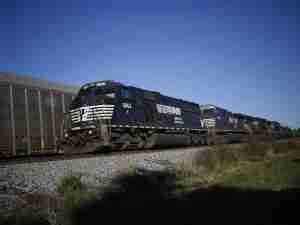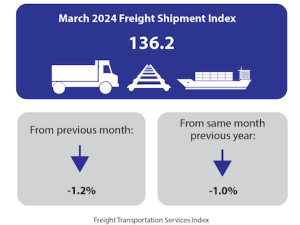The deal eases some of the pressure on South Africa, where since August almost 100,000 workers - including 75,000 in mining - have downed tools in often violent and illegal strikes that have undermined investor confidence and already shaky growth.
More than 20,000 truck drivers have been on a legal walk-out since late September, demanding higher wages. At least one man was killed and dozens of trucks were torched by demonstrators.
"The agreement has been signed by everyone. The strike is off immediately," Penwell Lunga, chairman of the Road Freight Employers Association, told Reuters.
He said workers agreed to wage increases of 10 percent from March 2013, 8 percent the following year and 9 percent for 2015.
News of the wage deal relieved some of the pressure on the rand. The currency, which tumbled to a 3-1/2 year low on Monday on concerns about weeks of crippling strikes, hit its highest level in a week immediately following the news.
The deal offers much needed relief after petrol stations were experiencing delays of up to a day in getting fuel and some had run dry.
Other affected companies included Super Group, Grindrod, Barloworld and Bidvest.
Striking workers at Petra Diamonds mines in South Africa have also agreed to return to work while talks with management continue, the National Union of Mineworkers said.
Production Losses
Strikes are not unusual in South Africa, but the past two months have been marred by extreme violence and illegal walkouts outside the labour bargaining structures.
There are many mining disputes still unresolved.
Seven of Anglo American Platinum's (Amplats) operations have been hit by wildcat strikes and the world's top producer of the precious metal has so far dismissed 12,000 workers due to the unrest. Other firms have followed suit.
Amplats said it had lost 67,000 ounces of platinum output to the labour unrest so far, resulting in revenue loss of around 1.1 billion rand ($126 million). The company is losing on average 3,800 ounces for each day of the strike.
Attendance at its affected mines remained below 20 percent.
The platinum producer has issued force majeure notices to its chrome clients, but said its ability to deliver platinum group metals and base metals remained unaffected at this stage.
In the gold industry, miners rejected the employer's latest wage offer on Thursday. Africa's top three bullion producers - AngloGold Ashanti, Gold Fields and Harmony Gold - have now given them until Monday to reconsider.
In a production update, Gold Fields said it had lost 35,000 ounces of gold in the three months to end-September due to the strikes at its KDC and Beatrix mines.
More than 50 people have been killed in labour-related unrest in the last two months, including 34 shot dead by police at Lonmin's Marikana platinum mine on Aug. 16 in the deadliest security incident since the end of apartheid.
South Africa is home to 80 percent of known reserves of platinum and the price of the precious metal has risen more than 20 percent since the Marikana shootings.
State-owned power utility Eskom, which relies on coal for 85 percent of its generation capacity, said the utility was monitoring developments closely. Any strike in the coal sector would have wider implications on the entire economy.
"We have seen some protest action happening at the coal mines," Eskom's Chief Executive Brian Dames told a briefing.
Operations so far have not been affected, coal producers, including BHP Billiton , Exxaro and Xstrata said.
A government minister, which oversees Eskom, urged the industry to address miners' concerns before they escalate into a full-blown strike as seen elsewhere.
Outside mining, a union representing 190,000 government workers has threatened a nationwide strike from next week.








